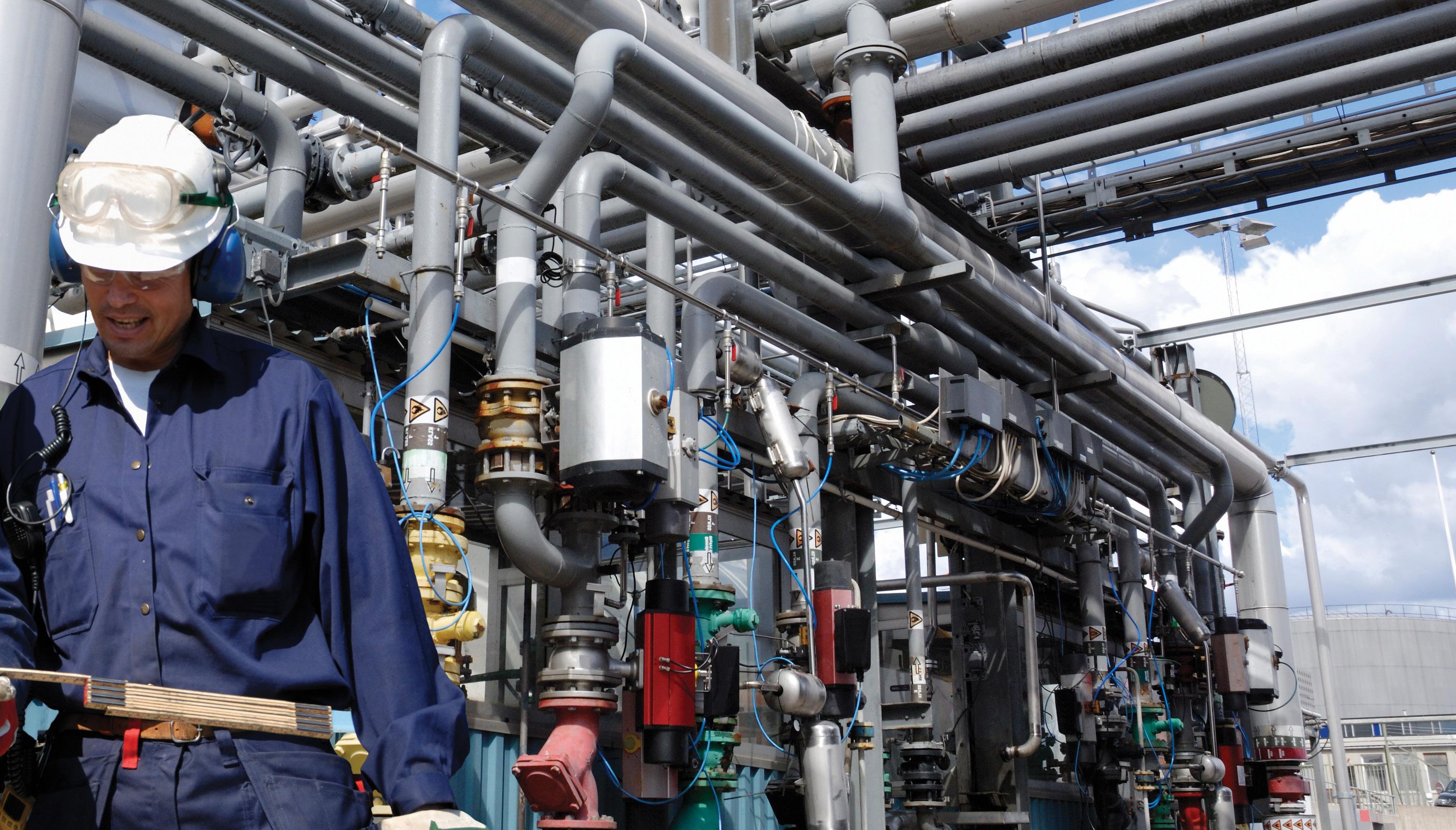
10 minute read
Biden’s Build Back Better Bill Would Destroy Jobs Harm the Energy Industry
The most consequential legislation affecting domestic production of oil and natural gas is currently being debated in the United States Congress: the budget reconciliation package, also known as the Build Back Better Act. Among a backdrop of higher gasoline prices, a global energy crisis and projections for higher home heating costs from natural gas, propane and heating oil this winter, Congress is considering measures to dramatically increase the costs of energy. This threatens not only the domestic energy industry but also the plethora of benefits derived from their product which has lowered U.S. and global emissions, restored manufacturing back to the U.S. by providing affordable, abundant energy, and led a technological revolution that has secured enough energy for the coming decades of demand.
Advertisement
Here, the Texas Alliance of Energy Producers has planted our flag advocating for our members and the families, jobs and land that provide the fuel and petrochemicals for modern life. For the past six months, we have worked actively with the Independent Petroleum Association of America (IPAA), the American Exploration & Production Council (AXPC), the Domestic Energy Producers Alliance (DEPA), and the National Stripper Well Association (NSWA), and Congressional leaders on both sides of the aisle to educate and inform on these proposals. Below we detail major fights on the elimination of standard business tax deductions like Intangible Drilling Costs (IDCs) and Percentage Depletion, some of the progress made and setbacks like the imposition of a new tax on methane emissions the outcomes which have not been determined. The ultimate fate of these proposals is still very much an open question, though new deadlines put final action by the Congress no later than Thanksgiving 2021. Lawmakers need to hear from you on how these provisions will harm you and your customers.
President Biden called on Congress to pass his Build Back Better agenda that started at a whopping $3.5 trillion. In hopes of pushing this bill through without Republican support, Democratic authors are pursuing the budget reconciliation process that allows them to pass legislation with a simple Senate majority. Congressional offices and advocates say, if passed, this bill will be a legacy achievement for Speaker Nancy Pelosi as she ends a 34year career in the U.S. House of Representatives. Beyond the matters affecting energy, the bill is a Democratic party wish list ranging from expanding Medicaid and new entitlements, housing, education and climate change, now totaling some $1.75 trillion after extensive opposition from moderate Democratic Senators Joe Manchin and Kyrsten Sinema. This makes the 2009 American Recovery and Reinvestment Act look rather small at $831 billion. The nonpartisan Tax Foundation “estimate(s) that the House bill would reduce long-run economic output by nearly 0.4% and eliminate about 107,000 full-time equivalent jobs in the United States. It would also reduce average after-tax incomes for the top 80% of taxpayers over the long run.”1
Because it is so broad, oil and gas advocates have focused on the industry-specific provisions, but it should be noted this bill raises taxes on all businesses, slows economic growth and initially proposed the disastrous Clean Electricity Performance Plan (CEPP) designed to make electricity more expensive and less reliable. When the proposal was first advanced in the spring, starting in the Senate, the bill included numerous tax provisions that would devastate domestic production of oil and gas, including the elimination of standard business tax deductions like IDCs and Percentage Depletion. Alliance Petroleum Economist Karr Ingham constructed an analysis in terms of negative employment impacts in Texas that would occur because of eliminating IDCs and Percentage Depletion. That analysis found a direct loss of 97,750 Texas jobs to
the direct upstream sector with the elimination of IDCs and a 22,500 Texas job loss with the elimination of percentage depletion, for a total loss of 120,250 jobs by the end of the decade. Worse, the multiplier effect, oil and gas jobs have in the economy mean additional negative impacts on the broader economy. In total, 300,625 direct, indirect and induced employment would be lost by 2031 with the real IDCs and Percentage Depletion. In addition to the negative employment effects detailed above, the repeal or elimination of IDCs and percentage depletion have other negative repercussions as well, including disadvantaging the U.S. domestic oil and gas exploration and production industry in favor of foreign producers/suppliers of crude oil and disadLike farming expenses or research and development deductions, IDCs allow oil and natural gas companies to recover their intangible costs more quickly, freeing funds up to reinvest in development, more jobs. When an operator drills a well, approximately 15% of the costs are tangible (pipe, controls, etc.), and 85% of the costs are intangible (IDCs). The largest share of IDCs often consists of the labor costs, which typically consists of a crew of roustabouts, roughnecks, floor hands, lead tong operators, motormen, derrickmen, assistant drillers and the driller. Independent producers can fully deduct IDCs in the year incurred, while large major integrated companies (companies that perform upstream, 28th letter to Congressional Leadership, Texas Representatives Henry Cuellar, Vicente Gonzalez, Lizzie Fletcher and Sylvia Garcia wrote: “The natural gas, oil, and fuels industries should not be prevented from recovering costs that other industries are eligible for simply because they operate in a different economic sector. The U.S. tax code allows industries across the manufacturing sector to recover costs related to job creation and other operational investments. For example, the largest share of intangible drilling costs often consists of the labor costs. Likewise, other provisions applicable to manufacturing enable companies to reinvest capital in hiring skilled labor and in large-scale capital projects that reduce emissions that promote U.S. competitiveness.
These common tax mechanisms allow these companies to create jobs, invest in our communities, and deliver the energy that working families rely on every day.”
Percentage Depletion is a specific tax allowance that allows oil and natural gas

vantaging smaller independent operators in Texas and the U.S. in favor of larger publicly traded U.S. companies.2
Intangible Drilling Costs is a standard business deduction for ordinary and necessary expenses, not a tax credit or a subsidy. midstream, and downstream activities from exploration and production to refining and distribution) must capitalize 30% of
IDCs and recover those costs over a fiveyear period. Congressional leaders responded. In a May
producers, limited to independent operators, to recover some of the investments associated with exploring for and producing oil and natural gas. It is afforded to all
U.S. mining operations, including metals/ minerals. Percentage depletion allows operators to retain a portion of earnings to reinvest back into energy development activities. Royalty owners also rely on this tax provision to reduce their costs and see their assets fully developed. Eliminating percentage depletion would raise taxes on small businesses and royalty owners and likely eliminate approximately 10% of U.S. oil and natural gas production.
The Alliance traveled to Washington, DC to meet with members of the House and Senate and their staffs, to discuss these impacts on independent oil and gas operators in Texas. By September 13th, the above Representatives added three more to their ranks, Texas Congressmen Marc Veasey, Filemon Vela and Collin Allred, with a follow-up letter to Congressional Leadership, saying: “We firmly believe that the budget reconciliation bill should not unduly disadvantage any industry, and oppose the targeting of U.S. oil, natural gas, and refining with increased taxes and fees and the exclusion of natural gas production from clean energy initiatives. These inequitable policies will cost American jobs, move America farther away from energy independence, and will slow the country’s move toward a lower carbon future.”3
We were honored to have Congressman Vicente Gonzalez attend the Alliance’s Annual
Meeting. Watch his comments here: www.you tube.com/watch?v=7Lexu6FXEQg&t=38s
In DC, the Alliance met briefly with Senator Joe Manchin to thank him for his support of natural gas in the energy mix and for recognizing the damage imposed by spending trillions of dollars. We also met with Senator Kyrsten Sinema’s energy legislative aide to discuss the ramifications of these proposed policies to small businesses in Texas, to the Arizona energy portfolio, which is heavy on natural gas and to tens of thousands of royalty owners in Arizona.
The latest version of the Build Back Better Act does not alter or eliminate IDCs and Percentage Depletion tax deductions. Unfortunately, it does contain a methane tax that would potentially be costly to oil and gas operators. It will also result in higher energy prices to consumers as supplies are constricted at the upstream level, and the tax is passed along to customers at the midstream, downstream, and utility levels.
The Methane Tax will raise energy expenses on every American household by assessing a $1,500 per unit of CO2 equivalent emissions. The EPA has not assessed the number of businesses, cities and utilities that would be affected by this law. Without calculations of these costs, Congress is leveling a tax on all users of oil and natural gas which includes every American household and business. It also has the unintended consequence of increasing global emissions by creating a competitive disadvantage for cleaner U.S. natural gas. Targeting oil and natural gas companies while leaving other large sources of methane emissions untouched undermines any claims that this is being done for environmental reasons.
Three of those members from Texas — Congressmen Cuellar, Gonzalez, and Vela — having made their opposition to the methane tax known all along continue to push for changes. In a letter to Speaker Pelosi and other House Democrat leadership, they made the points that the new methane tax is punitive to the oil and gas industry, would hit Texas the hardest, would potentially have significant negative impacts on smaller operators and would raise costs to consumers economy-wide. They also stressed that the EPA methane rule would be effective in reducing methane emissions from oil and gas operators and other sources, and that piling on the methane tax is duplicative and punitive. They conclude by saying, “The U.S. has the cleanest production of oil and natural gas and implementing these punitive measures will only hurt the industry’s ability to invest in cleaner and greener technologies.”
However, the methane fee remains in the bill. The passage of the House bill does not ensure the ultimate inclusion of the methane fee in the final bill. The Senate version of Build Back Better will contain significant differences, and Senators Manchin and Sinema have yet to communicate their stance on the methane fee. Those differences will have to be reconciled before it can become law. We need your voice added to those calling on Congress to eliminate the methane fee from the final bill. The time to act is now.
1https://taxfoundation.org/build-back-better-plan-reconciliation-bill-tax/
2https://texasalliance.org/federal-issues/ 3https://www.noia.org/wp-content/uploads/2021/09/ Letter-to-Leadership-on-Oil-and-Gas-Taxes-andFees-PDF.pdf
Because it is so broad, oil and gas advocates have focused on the industry-specific provisions, but it should be noted this bill raises taxes on all businesses, slows economic growth and initially proposed the disastrous Clean Electricity Performance Plan (CEPP) designed to make electricity more expensive and less reliable
About the author: Jason Modglin serves as the President of the Texas Alliance of Energy Producers.
Holiday Inn® San Antonio North Hill Country
Great Hotels Guest Love!


Just the place for you! The Holiday Inn N Hill Country offers 111 spacious guest rooms with a contemporary appeal. 2,800 sq. ft. of flexible meeting space, onsite restaurant & bar, indoor pool and whirlpool.
Offering Complimentary Hotel Shuttle to and from the San Antonio International Airport and within a 5 mile radius.
19280 Redland Road | San Antonio, TX. 78259 P: 210 298 8820 F: 210 298 8830 ask for the SHALE rate
holidayinn.com/hillcountrytx
UNMATCHED TEXAS HUNTING RETREAT
After hunting several ranches throughout South Texas over the last 15 years, I have finally found one that has it all. Fantastic accommodations, food and overall comfort are second to none. The number of quality animals is simply unbelievable.
- Bobby Phillips













